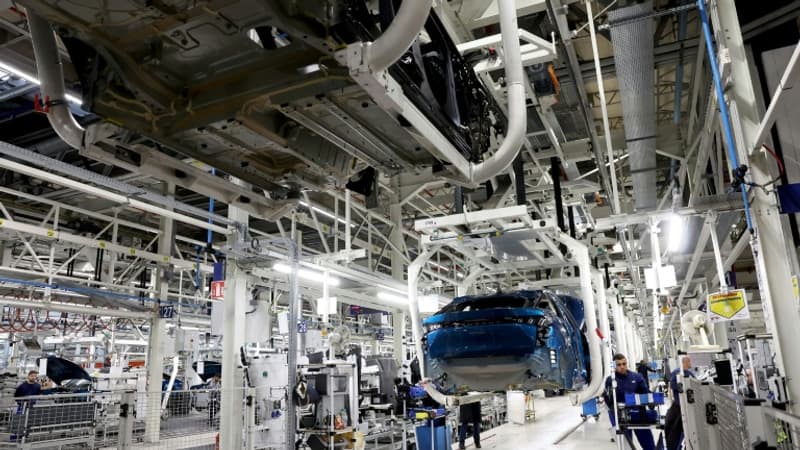“Deep and lasting crisis”, “crash”, risk of “disappearance”: a Senate report paints a very gloomy picture of the automobile industry in France and recommends around twenty measures to prevent France from becoming a simple “consumer” of vehicles. “If nothing is done, we are heading towards collapse,” estimates Alain Cadec (LR), fearing a future similar to that of the steel industry for this industry that employs 800,000 people in France (350,000 among manufacturers and 450,000 among equipment manufacturers and subcontractors).
20% drop in sales of private vehicles in France after the Covid-19 crisis (compared to the previous five years), drop of 12 points in the French share of European automobile production between 2000 and 2020, industrial fabric “undermined by two decades of relocations”: the report lists the black points of this sector.
A sector that, however, is “the backbone of the industry in France”, declared Dominique Estrosi Sassone (LR), president of the Senate Economic Affairs Committee, during a press conference.
Chinese competition hurts
This report is published shortly after the announcement by Stellantis (born from the merger between PSA and Fiat-Chrysler) of the closure of several of its factories for several days in Poissy, Sochaux and Mulhouse, following similar announcements in Germany, Spain, Poland and Italy. The second European manufacturer (Citroën, Fiat, Opel, Peugeot, etc.) explained that it wanted to “adapt the production rate to a difficult European market.” On Tuesday night it announced the largest investment in its century of history, $13 billion in four years… in the United States.
Renault, for its part, confirmed in early October that it was “taking into account” “market uncertainties”, after the press mentioned 3,000 job cuts worldwide, including at its headquarters in Boulogne-Billancourt, near Paris. The group has not yet made “any decision,” he stressed.
Two main reasons explain the setbacks in car manufacturing, according to Annick Jacquemet (Center Union): “the unprecedented contraction of the market” and “competition from non-European players”, mainly China. Against this observation, the report lists 18 “emergency measures”, including the imposition of 80% local content for vehicles sold in Europe, with the aim of at least 40% of batteries being produced locally by 2035.
“Affordable small cars”
Also included is the postponement of the ban on the sale of new thermal cars (gasoline, diesel, hybrid engines) in the EU from 2035, also desired by German Chancellor Friedrich Merz, who stated last week that “he will[it] “all”. The head of the German government has the support of the players in the traditional automotive sector in Europe. But others, such as electric vehicle manufacturers, battery manufacturers or charging operators, as well as climate NGOs, are calling on the European Commission not to back down.
Decarbonising the automotive sector is seen as a key step for the EU to meet its targets to reduce planet-warming emissions. For the report, this 2035 deadline “weakens European manufacturers trapped in a vice” between market contraction and “the colossal investments” that must be made to go electric.
Rémi Cardon (PS) recalled “the interest in driving an electric vehicle in the long term”, but “the difficulty is the entry cost”, since purchasing an electric car is even more expensive than a thermal car. For this reason, the report recommends “directing public support to promote the production of small and affordable vehicles.” In fact, French manufacturers have favored the manufacture of more high-end models, with a higher margin. Individually, Rémi Cardon also proposes reinforcing aid for the purchase of electric cars for middle-class households and an extension of this system at European level.
Source: BFM TV


